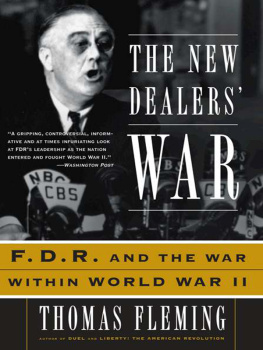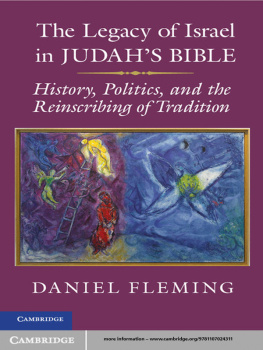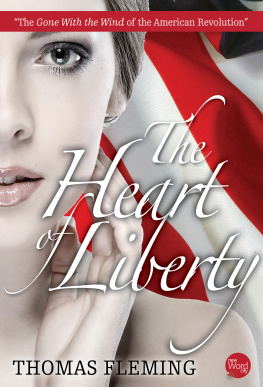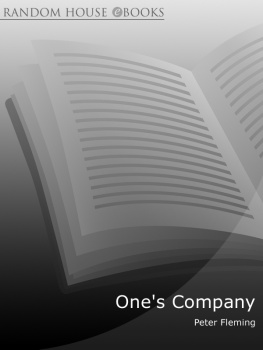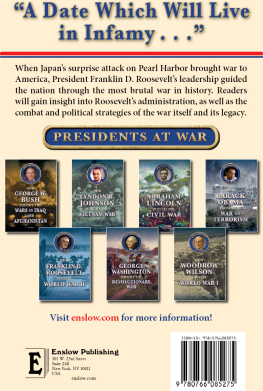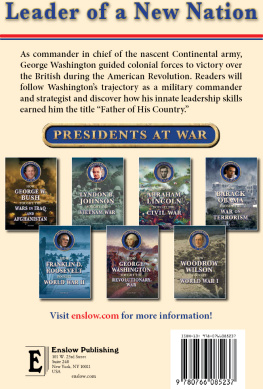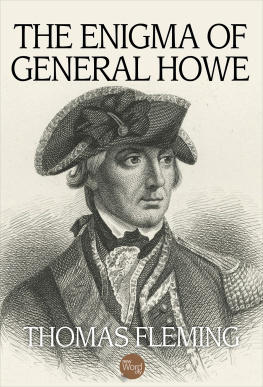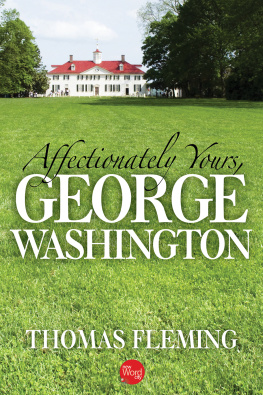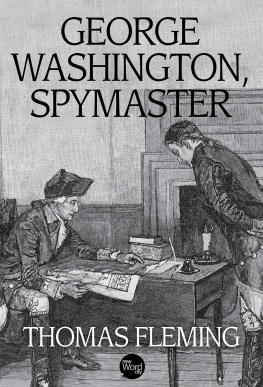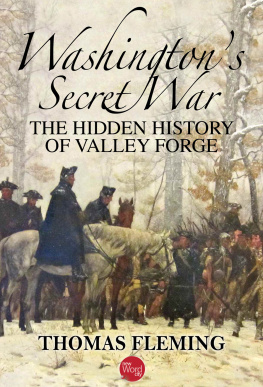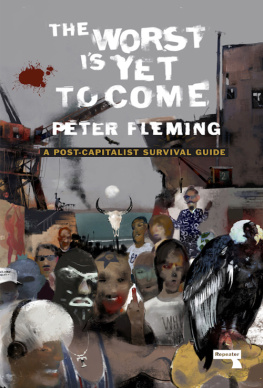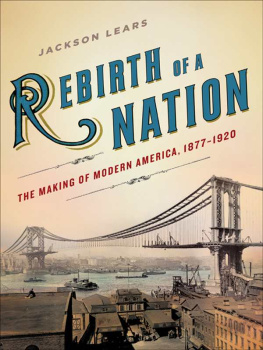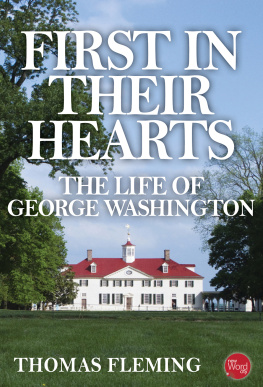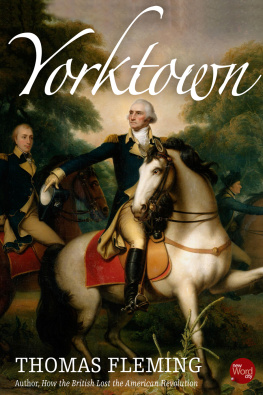Fleming - The New Dealers War
Here you can read online Fleming - The New Dealers War full text of the book (entire story) in english for free. Download pdf and epub, get meaning, cover and reviews about this ebook. City: New York, year: 2012;2008, publisher: Basic Books, genre: History. Description of the work, (preface) as well as reviews are available. Best literature library LitArk.com created for fans of good reading and offers a wide selection of genres:
Romance novel
Science fiction
Adventure
Detective
Science
History
Home and family
Prose
Art
Politics
Computer
Non-fiction
Religion
Business
Children
Humor
Choose a favorite category and find really read worthwhile books. Enjoy immersion in the world of imagination, feel the emotions of the characters or learn something new for yourself, make an fascinating discovery.
The New Dealers War: summary, description and annotation
We offer to read an annotation, description, summary or preface (depends on what the author of the book "The New Dealers War" wrote himself). If you haven't found the necessary information about the book — write in the comments, we will try to find it.
The New Dealers War — read online for free the complete book (whole text) full work
Below is the text of the book, divided by pages. System saving the place of the last page read, allows you to conveniently read the book "The New Dealers War" online for free, without having to search again every time where you left off. Put a bookmark, and you can go to the page where you finished reading at any time.
Font size:
Interval:
Bookmark:
NEW DEALERS WAR
Also by Thomas Fleming
Nonfiction
Duel: Alexander Hamilton, Aaron Burr and
the Future of America
Liberty! The American Revolution
1776: Year of Illusions
The Man Who Dared the Lightning
The Man from Monticello
West Point: The Men and Times of the U.S. Military Academy
One Small Candle
Beat the Last Drum
Now We Are Enemies
Fiction
When This Cruel War Is Over
Remember the Morning
Over There
Loyalties: A Novel of World War II
Time and Tide
The Officers Wives
Promises to Keep
Liberty Tavern
NEW DEALERS WAR
and
The War Within World War II

Copyright 2001 by Thomas Fleming
Published by Basic Books,
A Member of the Perseus Books Group
All rights reserved. Printed in the United States of America. No part of this book may be reproduced in any manner whatsoever without written permission except in the case of brief quotations embodied in critical articles and reviews. For information, address Basic Books, 387 Park Avenue South, New York, NY 100168810.
Book Design by Elizabeth Lahey
Text set in 11.5/16pt Sabon
A CIP catalog record for this book is available from the Library of Congress
ISBN: 978-0-465-02465-0
eBook ISBN: 9780786725205
In any future great national trial, compared with the
men of this, we shall have as weak and as strong,
as silly and as wise, as bad and as good. Let us
therefore study the incidents of this, as philosophy
to learn wisdom from, and none of them as
wrongs to be revenged.
ABRAHAM LINCOLN
The effect of power and publicity on all men is the
exaggeration of the self and a sort of tumor that ends
by killing the victims sympathies.
HENRY ADAMS
There is nothing new in the world
but the history you do not know.
HARRY S. TRUMAN
N o book of this dimension can be written without the help of many people. I would like to express my appreciation to several scholars who assisted me in my research. First is Steven Bernstein, a talented archivist who used the internet and library resources to help me track down numerous leads. Next is F. Kennon Moody, who solved a number of research problems at the Franklin D. Roosevelt Library in Hyde Park and also played a major role in helping me locate pictures that illuminate the text. My son, Richard Fleming, a trained librarian and archivist, as well as the holder of a graduate degree in Russian studies, used the resources of several New York City libraries, notably his alma mater, Columbia University, to provide me with invaluable aid. In Washington, D.C., Mrs. Anne McGovern helped me explore the Fulton Oursler Papers at the Georgetown University Library. I would also like to thank the staff of the Columbia Oral History Collection, who were invariably helpful in my explorations of such treasure troves as Henry Wallaces multivolume recollections. For their skill in helping me with their own fine history collection, as well as their readiness to retrieve out-of-print books for me via interlibrary loan, I am grateful to the staff of the New York Society Library. The librarian of the Century Association, W. Gregory Gallagher, was also helpful in computer searches for such books and swift in obtaining them when located. Also supportive were Kenneth French, head of the New Jersey Room in the Jersey City Public Library, and his colleague, Charles Markey, who shared with me many books and magazines from his personal library. A similar sense of gratitude marks my friendship with Lewis Daniels, head of the Westbrook, Conn., Library, where I spent several summers working on the book. I must also thank my agent, Ted Chichak, for his editorial advice and his enthusiasm for the book, over many years. My wife, Alice, was also invaluable as an inhouse editor and critic. Finally, my editor Don Fehrs encouragement and insights kept me on track and focused over the long haul.
E very time I walked through the vestibule of my family home in Jersey City in the 1940s, I saw Franklin D. Roosevelts face on the wall, where many devout Irish-Catholic families hung a portrait of the Sacred Heart of Jesus. FDR was the hero of my youth, the almost mythical figure on whom the political fortunes of my father, leader of the gritty working-class Sixth Ward, a vital cog in the citys powerful political machine, depended. The name Roosevelt had a magical aura, inducing total admiration of him and equally total loyalty to the Democratic Party.
But memories, hero-worship, the loyalties of youth, are the stuff of novels, not history. This book owes its existence to my painfully acquired belief that the historians chief task is to separate history from memory. In our understanding of the cataclysm that historians call World War II, we are in the final stage of celebrating the riches of memory. We are saluting the generation that won the titanic global conflict. There is nothing wrong with this impulse. These men and women deserve the literary and cinematic cheers we are giving them.
But memory is not history. It is too clotted with sentiment, with the kind of retrospective distortion that we all inflict on the past. History gives us, not the past seen through the eyes of the present, but the past in the eyes, the voices, the hearts and minds of the men and women who lived through a particular time, as they experienced it.
For some people, this kind of history is a disturbing experience. When I wrote 1776: Year of Illusions, which described the unreal assumptions that confused the founding fathers and their British adversaries in that seminal year, as well as the illusory golden glow in which Americans viewed the Revolution thereafter, I was accused of lse majest, sacrilege, unpatriotism. One man rushed up to a platform as I finished speaking about the book and roared that I was one of those people who said a glass was half empty rather than half full.
I could have replied (but I didnt) that if the rest of the glass was full of hot air or some other ingredient that altered the contents, it was not a bad idea to know this. That is a somewhat crude way of explaining why history is more important than memory. I also believe history is valuable because it makes us more sympathetic (or at least, less apocalyptically judgmental) toward the politicians of our own time. They too grope into the future that becomes their history with the same or similar confusions and weaknesses.
This is the spirit in which I have written The New Dealers War. The title has a special significance for me. I first saw it in 1952, when I was working for Fulton Oursler, a many-sided writer who also had an extraordinary career as an editor of national magazines and friend of presidents. I recall the encounter as one of those primary moments that impelled me to become an historian. In a flash the phrase challenged me to think of Franklin D. Roosevelt, the Democratic Party, and World War II not as sacred entities but as historical experiences, to be studied, explored, and eventually understood, like the American Revolution or the Civil War. The words remained alive in my mind throughout the next four decades. I hope this book will give them life and meaning in the minds of my readers.
THE BIG LEAK
B lazoned in huge black letters across the front page of the December 4, 1941, issue of the
Font size:
Interval:
Bookmark:
Similar books «The New Dealers War»
Look at similar books to The New Dealers War. We have selected literature similar in name and meaning in the hope of providing readers with more options to find new, interesting, not yet read works.
Discussion, reviews of the book The New Dealers War and just readers' own opinions. Leave your comments, write what you think about the work, its meaning or the main characters. Specify what exactly you liked and what you didn't like, and why you think so.

